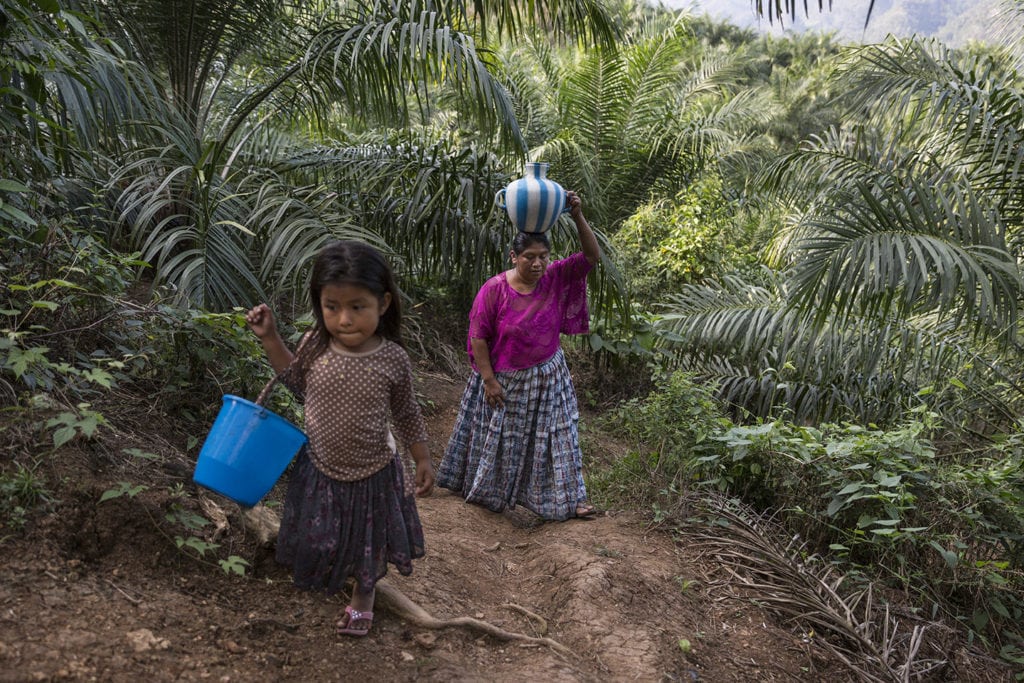Last week in Texas, the U.S. Border Patrol shot and killed 20-year-old Claudia Patricia Gómez Gonzáles, an indigenous woman from the Maya Mam community of San Juan Ostuncalco in the Guatemalan highlands.
Claudia left her home after being unable to find a job with her degree in accounting. She was heading to Alexandria, Virginia, to join her fiancé, whom she met at school in Guatemala.
SHE HAS A NAME: unarmed 20 year old, Claudia Patricia Gómez González, from Guatemala, was shot and killed by an ICE agent on Wednesday near Laredo, Texas. pic.twitter.com/mNTgaomOvD
— Michael Skolnik (@MichaelSkolnik) May 25, 2018
This horrific tragedy has happened because of the persistent dehumanization of immigrants by politicians such as Donald Trump (which has exacerbated a culture of injustice that has long characterized Border Patrol). Trump has repeatedly mixed immigrants with gang members, describing them as “animals” at a recent public event and urging his appointees to implement a systematic crackdown on people suspected of being undocumented.
But what Trump and his team are intent on ignoring are the root causes of this problem. People like Claudia from Guatemala and other Central American countries are being forced to leave their homes in no small part because longstanding U.S. policies and practices in Central America make access to land and resources among the most unequal in the world.
Claudia was from a highland indigenous community that grows corn, beans and potatoes. These communities don’t have sufficient access to land or the public services to support a thriving rural economy. Claudia educated herself, but her associate’s degree in accounting was not enough for an indigenous woman to be able to get a job in a country with high unemployment and high levels of racist discrimination.
Guatemala is rich in natural resources, but devastated by extreme levels of inequality in access to resources and opportunities. In Guatemala, half the population lives in rural areas, but only 2.5% of the farms control two thirds of the agricultural land. Local communities are being forced off their land and further into poverty as they’re replaced with large plantations that grow palm oil, bananas and rubber for foreign markets.
Media accounts frequently mention violence as being the cause of outmigration from Central America without examining the roots of violence. In Guatemala, and elsewhere, violence has grown out of civil war and social conflict rooted in the unequal distribution of land, as U.S. government agencies have themselves acknowledged.
President Bill Clinton apologized for the U.S. Government’s role in supporting military rule in Guatemala that led to genocide and the killing of 200,000 mostly indigenous people and the displacement of 2.5 million. Yet our government has not taken any effective action to address land inequality or to pressure the Guatemalan government to do so. In fact, we have done exactly the opposite. U.S. trade and infrastructure assistance policies support large-scale agriculture for export. Trade deals like CAFTA hurt Guatemala’s indigenous farmers. And we continue to provide equipment, training, and other support to military and police forces that repress Guatemalan citizens.
Palm oil and other biofuel crops like sugarcane are a big part of the problem. Indigenous Mam people like Claudia, and the Quiche and other Mayan groups now live mostly in the Guatemalan highlands where good land is scarce. They once occupied territory that extended to the Pacific Coast – land that is now occupied by large-scale plantations that offer rural people little in terms of economic development, compared to what thriving small farms could offer.
Palm plantations producing oil for export are still expanding on the Pacific Coast and in northeastern Guatemala displacing the indigenous people who live there. This leaves them without land to grow food or adequate employment, and causes more migration to the United States.
These problems could be solved by policies that support access to land and land redistribution, investment in small farms and rural public services, and ending policies that support biofuels instead of real solutions to climate change.
Of course, policies to address the root causes must also be accompanied by human rights-based immigration reform, which could have saved Claudia’s life and could save the lives of many more. Many immigrants from Central America send money to their relatives to invest in small-scale farming. If they were given freedom of movement, many would eventually choose to return to their communities bringing back resources to invest in land and farming, and helping to address the problems that forced them to migrate in the first place.

